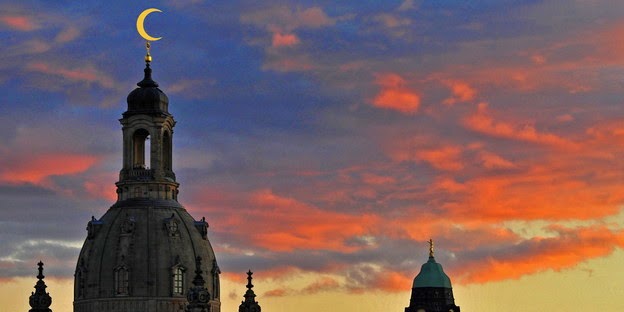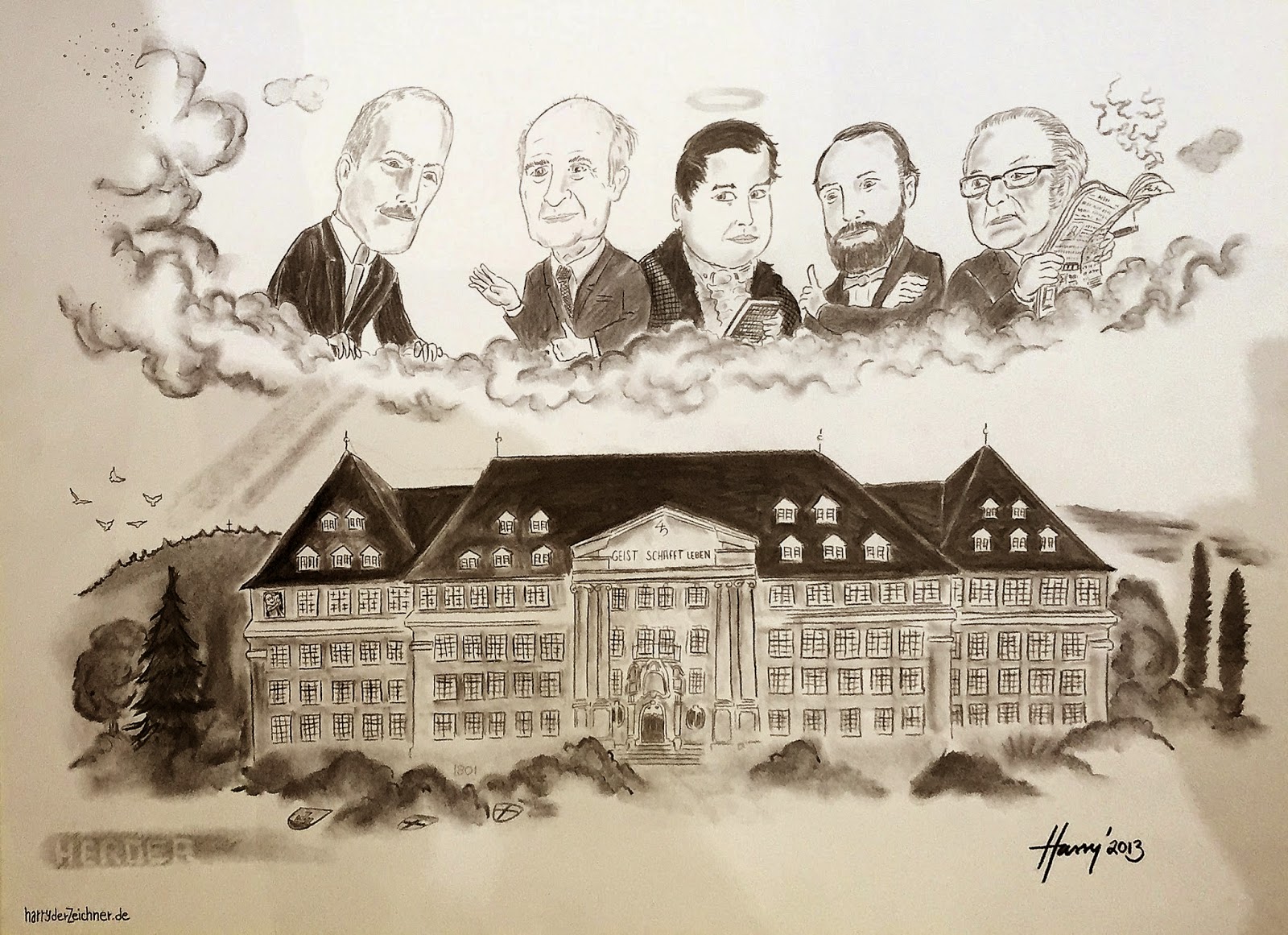 |
| Glienicke Bridge around 1912 |
 |
| Photo shooting in November 2011. The sign reads: Germany and Europe were divided here until November 10, 1989, at 6 p.m. |
 |
| ©Wikipedia/Mariluna |
During the Cold War, the bridge was the border between the East German Democratic Republic (GDR) and West Berlin, frequently serving as an exchange point for spies. The most famous swap occurred on February 10, 1962, when the Soviets handed over U-2 pilot Gary Powers and American student Frederic Pryor against Soviet KGB Colonel Vilyam Fisher, aka Rudolf Ivanovich Abel. The USSR honored its spy with a stamp just in the year when the Union of Soviet Socialist Republics ceased to exist, splitting up into autonomous republics.
When you stand on Glienicke Bridge and look north over the waters, you notice a building with a spire in the far distance, the Heilandskirche of Sacrow.
 |
| Ecclesia sanctissimi Salvatoris in portu sacro (©dpda) |
When the GDR closed its borders to the West on August 13, 1961, the barrier ran across the church property such that the campanile serving as an observation tower for the East German border guards eventually became part of the concrete wall. The church nave stood inside the Todesstreifen (death strip) between the wall and the border. Later the East German authorities sealed off the building completely to prevent any escape of people from East to West.
 |
| Looking from the campanile down to the death strip. The concrete wall is to the left (©Pfingstkirchengemeinde) |
When the wall eventually fell on November 9, 1989, the Heilandskirche, nearly in ruins, became accessible again.
 |
| The interior of the Heilandskirche in November 1989 (©Pfingstkirchengemeinde) |
 |
| The parish people were already seated when Pastor Strauss entered the dilapidated church around midnight to celebrate Christmas Eve service on December 24, 1989 (©Birgit Regotzki/Der Spiegel) |
 |
| Auferstanden aus Ruinen (Risen from ruins) is the first line of the national anthem of the former GDR (©dpda) |














